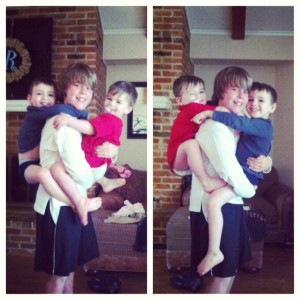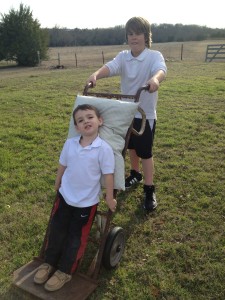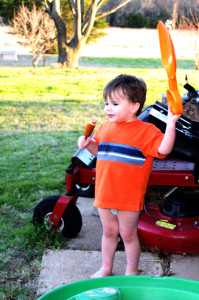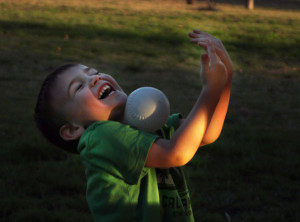By Lynette George and Joyce Godwin
Published in the Herald Democrat July 7, 2013
It is no respecter of persons. It preys on people of all ages, backgrounds and lifestyles. It often arrives as a thief in the night and can destroy the lives of its victims, their families and loved ones. It’s name — cancer.
In decades past, a diagnosis of almost any type of cancer was a death sentence for most of its victims. Today, due to breakthroughs in early diagnosis and treatment options, more than ever, cancer victims are now cancer survivors. However, the road to recovery is still a long and harrowing journey, filled with pain at times, questions and fears.
Starting this Sunday and continuing on Sunday, July 14, several local cancer survivors and patients will share portions of their own journey through cancer. They hope their stories will give others battling the disease encouragement, inspiration and motivation to continue the fight. Below, Bill Godwin of Van Alstyne and Carla Roberts of Denison talk about their experiences.
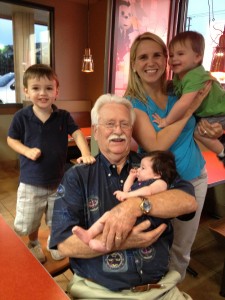
Joyce Godwin/Herald Democrat
In this photo, three of Bill Godwin’s grandchildren and his daughter stop for the camera the night before he reported to Baylor Medical in Dallas for surgery in September to remove a cancerous tumor. From left are Langston, 3, Godwin holding Brantley, 2 months, Jamie Roubinek holding Riverson, 2.
Bill Godwin
A bout with pneumonia lasting much longer than it should have is what led to last year’s grim discovery for Bill Godwin of Van Alstyne. Dr. George Nieburg of Sherman said he took one look at Godwin’s mis-shaped tonsil and knew he needed to see a specialist. That turned out to be Dr. W.F. Looney, who conducted a biopsy.
The results were positive for squamous cell carcinoma, and Godwin began a journey with which he was all too familiar.
“Your head is swimming with news and information to process when this happens,” Godwin said. “It’s overwhelming for anybody. Since I have done this before, I knew what I was in for and I guess that’s what made me start looking at alternative methods to fighting my disease.”
Fifteen years ago, Godwin was diagnosed with carcinogenic melanoma. Surgeries followed, and then it was a year-long treatment of high doses of interferon. The side effects were much the same as chemotherapy. For the first 30 days he received 40 million daily units of interferon. His therapy decreased to 20-million-unit injections three times weekly for the next 11 months.
This time, following Godwin’s visit with an oncologist, he was sent to a surgeon in Dallas, and within a couple of weeks the affected tonsil and surrounding soft tissue was removed through robotic surgery.
Enter Alternative Medical Center of Rowlett and Dr. Ray Hammon and a different approach to the fight against cancer. It turned out to be a good fit for Godwin and the “something different” he was looking for.
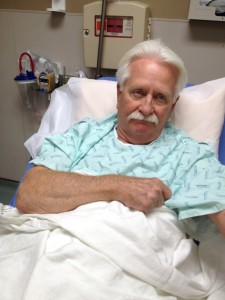
Joyce Godwin/Herald Democrat
Bill Godwin, dressed in the Baylor Medical Center hospital gown, listens to doctor’s instructions and explanations as he prepares for surgery in September at Baylor, Dallas.
Instead of chemotherapy, Godwin gets high doses of Vitamin C along with a number of other ingredients designed to defeat Godwin’s cancer. His cells were tested early in his treatment to determine what works best on him, and his therapy protocol is made just for him.
“Cancer is still the second largest killer in the U.S. behind heart disease,” Hammon said, “and the patients who take charge of their own care are the ones who do well. The patient is my boss. You have what you need because you are paying the bills.”
Hammon said what his clinic is doing is state of the art — the future of medicine. “One day, what we do will be the standard of care.” It’s tailor made for each patient and doesn’t follow protocols designed for groups of people.
Hammon also works with the patients’ oncologist, surgeon or other medical provider. He wants his patients to have all the information they need to make good, informed decisions.
For Godwin, his treatments seem to be doing what he needs. Each test to measure progress has shown improvement. He knows he still has a long way to go but says he’s going to stick with the alternative method. “I’m not sick all the time, my body seem to be tolerating my treatments and I feel good,” he said.
Godwin was recommended by doctors to have one more surgery to remove lymph nodes, but so far he has refused. “I know I’m rolling the dice on this, but this is the way I want to go,” he said about refusing further surgery at this time. He added, “That doesn’t mean I won’t do it later, but for now, I’m going to let my treatments with Dr. Hammon run their course.”
Carla Roberts
Carla Roberts and Amber Roberts of Denison share an easy, good-natured banter mixed with generous amounts of laughter. Their smiling faces simultaneously grow somber at varying points as they address the topic of their interview. Their camaraderie is not that of just a parent and child, but of warriors strengthened in a very personal battle – Carla Roberts’ fight against breast cancer.
Statistics from the North Texas Affiliate of Susan G. Komen for the Cure show that breast cancer is significant in north Texas. The affiliate also notes that regardless of ethnicity, all women in the north Texas area exhibit higher invasive breast cancer incidence rates than the state average. The breast cancer mortality rate of 23.7 percent in Grayson County is higher than in any other north Texas counties per the Texas Cancer Registry report of 2011. The 2008 U.S. Census reports Grayson County as having the highest percentage of uninsured residents, the lowest median household income ($46,993) and the highest rate of poverty (14.4%).
Carla, age 53, says she knew there was problem in one of her breasts, but lack of insurance and money concerns stopped her from checking it right away.
“We didn’t have insurance, so I didn’t go for regular check-ups … It was in February of 2010. I knew a lump was there and the breast started changing rapidly. It was a visual change … My younger sister had been diagnosed with triple negative breast cancer three years beforehand, so I pretty well knew what mine was, and I had an uncle who had breast cancer and had to have a mastectomy” says Roberts. “I finally had to tell my husband, Bruce, and that was the hard part.”
A family friend introduced Carla to local oncologist, Dr. Linda Castillo.
“Even before having a mammogram, she pretty much looked at me and said, ‘Yes. You have breast cancer,’” recalls Carla.
Amber adds that, at Castillo’s initial diagnosis, which turned out to be correct, her mother became angry. Carla says she wasn’t so much angry as hysterical.
“I was thinking, ‘How are we going to pay for this?’ I didn’t know if I should even pursue treatment because of the money. When you’re providing for your family, a major illness can wipe you out in most cases. I think women in particular want to provide for their families more than themselves.”
Carla was also scared, remembering stories she’d heard about breast cancer. “Having cancer is kind of like being pregnant. Everyone has a different story. If you listen to them all, you’re terrified … My idea on breast cancer was stories I’d heard about my own great-grandmother dying horribly (of breast cancer) and how they could hear her screams across the cornfield.”
A mammogram, biopsy and several weeks later, Roberts was back in Castillo’s office for the verdict. She had HER2-Positive breast cancer which is reported to be more aggressive than other types of breast cancer and less responsive to hormone treatment. However, there are effective treatments specifically targeted for the HER2. Castillo first advised Roberts to have a mastectomy, removing the breast.
Having to tell her family was difficult for Carla. Again, she considered not pursuing treatment. Her family disagreed.
“When mom first told me, I panicked,” says Amber. “The first thing out of her mouth was her telling me what was going on and why she shouldn’t get treated. I explained to her that she had a family that cares about her, but everything she said kept going back to the money it would take for treatment.”
Carla says her husband also supported the mastectomy and cancer treatment, even though she was quite emotional with him.
“At one point, Bruce said, ‘I don’t care if they take your breast off’ and I said ‘I don’t care if you care. I care about me,” says Carla.
Carla soon learned the importance of asking for help.
“I give all the credit to the unknown people who called and talked to me. One thing I can say is to open your mouth and ask for help. I can’t name the number of women who talked to me but I’ll never meet and who helped me put the pieces together and get through it,” says Carla. “Susan Hooper (of the local 500 Strong breast cancer support group) got me through the first steps with Susan G. Komen. One of my friends talked to Planned Parenthood and they had a wonderful lady there who helped me to get on Texas Breast and Cervical Cancer Medicaid. I’d never even heard of that … We are staunch supporters of Planned Parenthood and hate that they left Sherman.”
Amber adds, “We owe a lot to Planned Parenthood. Mom wouldn’t have known about that Medicaid program without them.”
Carla was surprised that she could get help, even before being accepted onto the special Medicaid program.
“I’d assumed the doctors and hospitals wouldn’t even take me if I didn’t have any way to pay,” says Carla. “But even the nurses at the hospitals said not to worry about it, just get in there and take my treatments … It is really overwhelming when you think about the cost of being sick in America. It’s very daunting – almost worse than the illness itself. That never occurred to me. You’re not talking $100 when you walk in the door. The very first test they did on me was several thousands of dollars!”
Once approved for Medicaid and receiving strong moral support of strangers, family and friends, Carla opted for treatment, but still had reservations.
“At first, I fought it (the mastectomy) tooth and nail. Nobody wants that (to have a breast removed) … I finally made up my mind to do the surgery, then Dr. Castillo said no, that we should do some chemotherapy first to shrink the tumor. I did about eight different sessions of chemo and I kept thinking, ‘Oh! That’s it.’ Little did I know there’d be about 20 more (chemo sessions) after the surgery.
“The tumor did shrink. You could see if shrinking, so I asked Dr. Castillo if she could save the breast. Not that I was 20 and worried about vanity, it was just terrifying,” says Carla.
A mastectomy was still needed and Roberts went through with it, her family by her side. She and Amber recall the night before surgery.
“We (Carla and Amber) sent the boys home. We got up, walked around the hospital, looked at the babies. We ordered pizza in the middle of the night and played cards. That was one of the greatest gifts Amber gave me — being there that particular night — because reality set in,” says Carla.
After the mastectomy, Carla underwent 20 more sessions of chemotherapy, followed by 35 sessions of radiation which began in the spring of 2011. In addition, she was on special medication to help keep the cancer at bay. Through her treatment, Carla continued to work, except for days here and there, and says she was never really nauseated thanks to nausea medication. She was just extremely tired and her brain wasn’t always as sharp as it had been.
“We call that chemo-brain,” Amber throws in with a big grin.
Losing a breast wasn’t the only trauma that Carla underwent.
“Don’t let anybody fool you. If a woman loses her hair, it’s one of the most traumatic things. It really hits you hard. When I lost my eyebrows and eyelashes, then I felt like a cancer patient because people could see me and say, ‘Oh. A cancer patient.’ It felt like I had a cancer sign over my head.”
A stylist at a local salon encouraged Carla to not shave her head immediately like many women do, but cut off a few inches each week so the shock of having no hair wouldn’t be so great. Carla learned to wear hats with bits of hairlike fringe, and other tips she learned from those who’d been through the cancer fire.
“My son got married shortly after I got diagnosed and I was excited … but I also bawled,” says Carla. “I’d wanted to be more involved in the wedding, but just couldn’t. His wedding was the one and only time I wore a wig.”
Recently, Carla went back for a check up and was pronounced cancer-free, a little more than three years after first being diagnosed. Carla and her family can now breath sighs of relief, but Carla says she’s still paranoid.
“If I have a pain of any kind, my mind immediately jumps into thinking it’s the cancer again,” says Carla.
Amber has taken her mother’s cancer battle to heart, trying to take better care of herself and even asking to have a mammogram, though she’s only in her 20s. She says she was frustrated that, even with the family history of cancer, she was unable to get a mammogram due to her young age. She and her mother are both sharing what they’ve learned, imparting the knowledge they’ve gained to others who may be just starting their cancer battles.
“A prime example was one day when I went apartment shopping with my brother. The lady who helped us had classic signs of cancer, so I asked her. She had breast cancer. When I told her about mom, she almost started crying. A few weeks later, I saw her somewhere when I was with my mother. I introduced her and told her my mother was a survivor! It really motivated her.”
Carla beams with pride in her daughter.
“This young lady has really taken it upon herself to talk to other 20-year-olds (about cancer). She’s talked to women her age whose mother or sister or grandmother has breast cancer. She’s talked about how to help or react to the family member and how not to be a baby and run away from the situation. I’m so proud of her. She’s talked so openly to other people about me – good or bad … I go to the cancer support group and Amber goes with me. She has embraced it and tries to help other people … And I feel guilt. I’ll worry the rest of my life that Amber could get breast cancer, even though she’s educated about the disease now.”
In encouraging others, Carla says, “Almost everybody knows somebody with breast cancer. Listen to them for ideas, tips and places to go, but you have to say ‘I need help.’ Other women will call other women and say, ‘I know this lady who has a question about this.’ To this day, people call and ask me things. I think it’s important to impart what little information you know and be supportive. All of them were so positive for me and told me I could do it. I was fortunate because I think a lot of things happened without my involvement. I’m not much of a fighter. I think it’s (her successful battle with cancer) because of the other people who were in play … The worst thing is not to talk about the cancer or not be receptive or listen. Sometimes you just want to rant and rave. You feel like it’s all unfair. Then everything is fine again … Be open to information and ideas. Especially the first four or so months, it’s just mind-boggling , all the thoughts running through your head.”
Amber adds, “The best thing to do (as a family member or friend of a cancer patient) is to let them blow through whatever they need to.”
Carla agrees, suggesting that often, the patient just needs someone with which to vent their anger, frustration, fears, sadness and confusion to. Once that’s done, the patient and their supporters can move on towards healing.
“It’s (cancer) hard in relationships, children and friends because you cling to them. It’s hard for them to understand unless they’ve walked in your shoes. You feel old and deformed with the hair loss. You think you’ll never wear a bathing suit again,” says Carla. “The worst thing is to ignore it. I think a lot of men are like that … I don’t think most men are geared that way and they hate to see their women in pain.”
According to Amber, despite the horrific scare the disease brought to the Roberts family, it also resulted in positive things.
“I think the whole cancer thing made our relationship better. And now, I can look at someone and say that I know what you’re going through because my mom told me everything.”
Both women have one last suggestion for those who become a survivor – have a celebration because life is to be celebrated!
••••••••••••••••••• •••••••••••••••••••
With the high occurrence of cancer, including breast cancer, in north Texas, a number of programs have been started to help victims and their families battle the deadly disease.
Locally, the 500 Strong program and Women Rock, Inc. are two such groups.
The Texoma Health Foundation’s (THF) 500 Strong project raises funds for the foundation’s breast cancer project. For more than seven years, the project has helped local residents with the cost of treatments and surgeries after being diagnosed with breast cancer. It is the only program in Grayson County that is set up to continue with lifesaving procedures such as chemotherapy, radiation and mastectomies without the patient having to travel to elsewhere for the procedures and treatments. The program works to raise funds for cancer patients, with 100 percent of every donation goes directly to help cover patients’ costs for treatments and for paying other bills when needed. The THF absorbs all administrative and marketing costs.
Besides providing financial assistance, there is a THF survivor support group for women fighting cancer. The group also works to raise awareness of breast cancer in the community. In addition, it oversees the Room for Hope, the brainchild of a local high school student. The Room for Hope provides free wigs, scarves, bras and prosthetics to local cancer victims.
The support group meets the second Monday of each month, 7 p.m., in the THF conference room inside Reba’s Ranch House at 5036 Reba Drive in Denison. For information about the 500 strong program, the support group or the Room for Hope, call 903-624-9831.
THF staff and volunteers note that, at present, there is a large waiting list of women in desperate need of financial assistance in fighting their cancer, so donations are especially needed.
The vision of Women Rock Inc. is to spread breast cancer awareness and education and to increase early detection procedures. A mobile education program is taken throughout north Texas, and its government funds program helps provide screening exams for women that qualify (the under insured and uninsured). In addition, the program provides free transportation for cancer victims to go back and forth to treatments and doctors’ appointments via its pink bus.
To contact Women Rock, Inc., call 903-487-2528.

